Born in 1986, Paul Darlin Tchignou grew up in the city of Douala, the economic capital of Cameroon. His father is a bricklayer, and his mother is busy at home taking care of her large family of eight children.
Paul Darlin has been passionate about science since he was a child. He wanted to be a doctor, but circumstances and the school system's shortcomings in Cameroon kept him from achieving this goal. He earned a degree in natural sciences and then worked as a substitute teacher.
From Cameroon to Abitibi
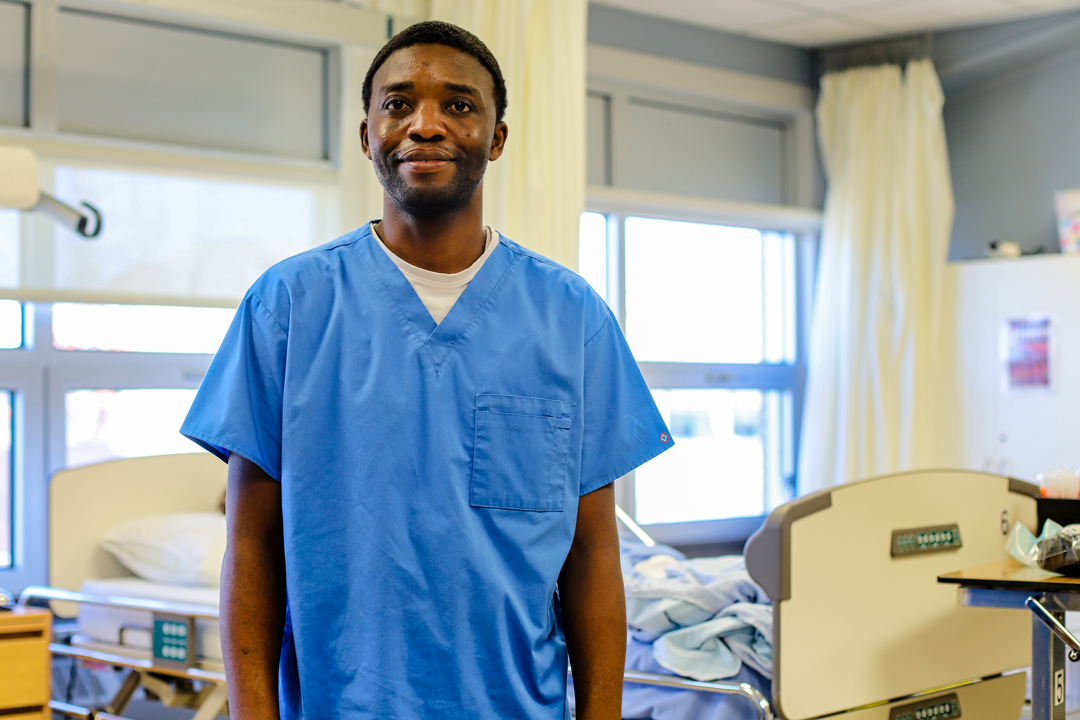 Born in Douala, Cameroon, Paul Darlin Tchignou chose Québec. A journey that took him thousands of kilometers and led him to the CFP Harricana in Amos, Abitibi.
Born in Douala, Cameroon, Paul Darlin Tchignou chose Québec. A journey that took him thousands of kilometers and led him to the CFP Harricana in Amos, Abitibi.It is in part thanks to his brother-in-law that he decided to come to Canada to train as a licensed practical nurse. "My brother-in-law studied in Abitibi. He would speak about his experience with so much enthusiasm, and he put me in contact with the right people. He also supported me financially by covering some of my expenses. That is such a nice gesture of solidarity. "
The young man chose the Centre de formation professionnelle Harricana, a dynamic vocational centre located in Amos, Abitibi. "I didn't hesitate. It was a good opportunity for me. Settling in a region, at least during the semester, has some nice advantages, like staying away from the distractions of the big city and fostering mutual support and camaraderie among students. You are less anonymous in a small community."
Paul Darlin began his program in August 2021 and is expected to be done in the summer of 2023. "Québec is among the best in vocational training. The province offers excellent prospects in the health care sector," he says. When asked if he would prefer to settle here or return to Cameroon to pursue his career, he replies wisely, "It is too early to make that decision."
"I want to succeed and acquire the maximum of skills. After all, I've already crossed a whole continent to get here. The hardest part is over."
Help Integrating his New Environment
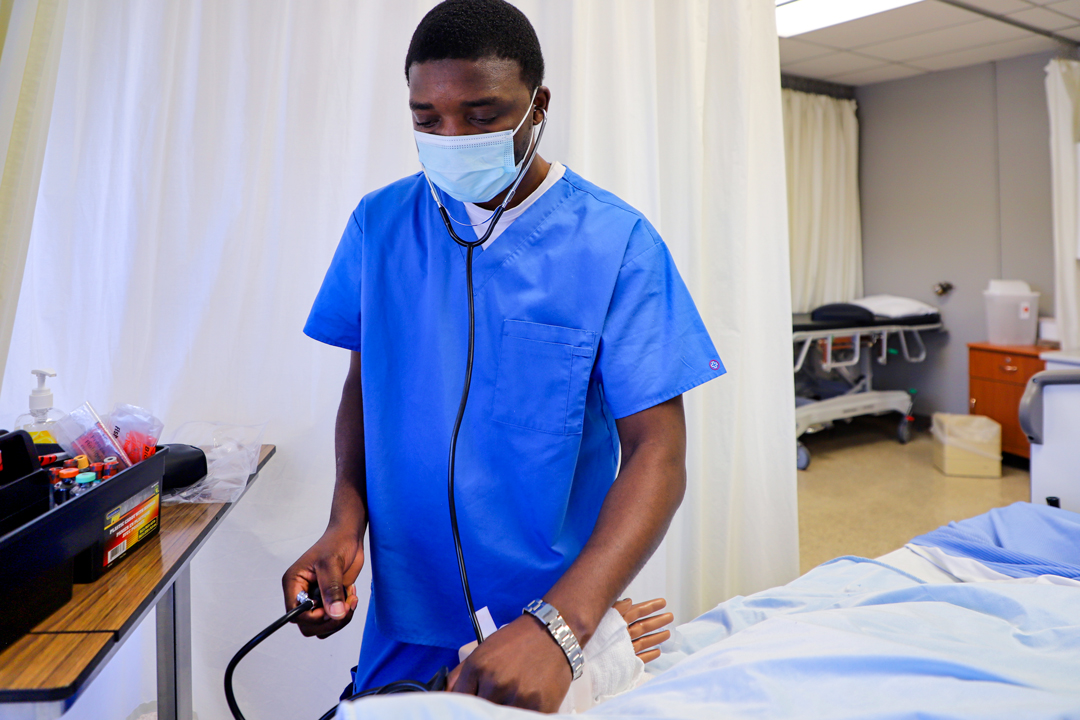 As a child, he dreamed of working in the healthcare sector. He is one step closer to his goal, as he is now studying Health, Assistance and Nursing.
As a child, he dreamed of working in the healthcare sector. He is one step closer to his goal, as he is now studying Health, Assistance and Nursing.Paul Darlin Tchignou says he received a warm welcome to his new life in Abitibi. He was pleased to discover the Mouvement de la relève d'Amos-région (MRAR), a non-profit organization whose particularity is being managed by a board of directors composed exclusively of young people between the ages of 18 and 35. The MRAR promotes the social and professional integration of young people. "They provide a space for ex-pats to socialize, share their difficulties and make new friends."
Paul Darlin mentions Québec métiers d’avenir as the organization he relied on. "When I think of this organization, I can't help but smile," says the young man. "I would not have made it without them. They made everything easy: my training, settling in Canada, and my integration. They are really great!"

An Icy Encounter
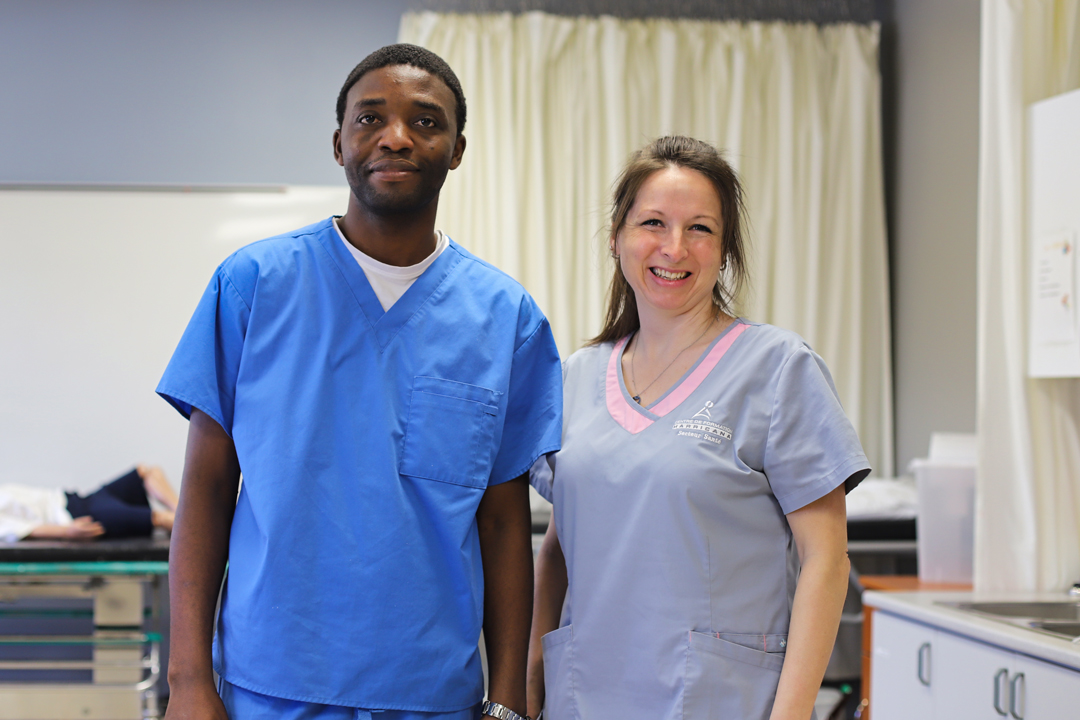 Paul Darlin next to his teacher, Sylvie Roy.
Paul Darlin next to his teacher, Sylvie Roy.Paul Darlin did have an unfortunate encounter that shows the cultural differences between Africa and America. One day, while returning from the grocery store on foot, his hands froze in the -34°C cold as he did not have a car. Worried about the pain, he sought refuge in an apartment to keep warm. He received an icy reception from the occupants, and they threatened to call the police. Luckily, a few minutes later, someone driving a car picked him up and drove him home.
Vocational Centre - Centre de formation Harricana
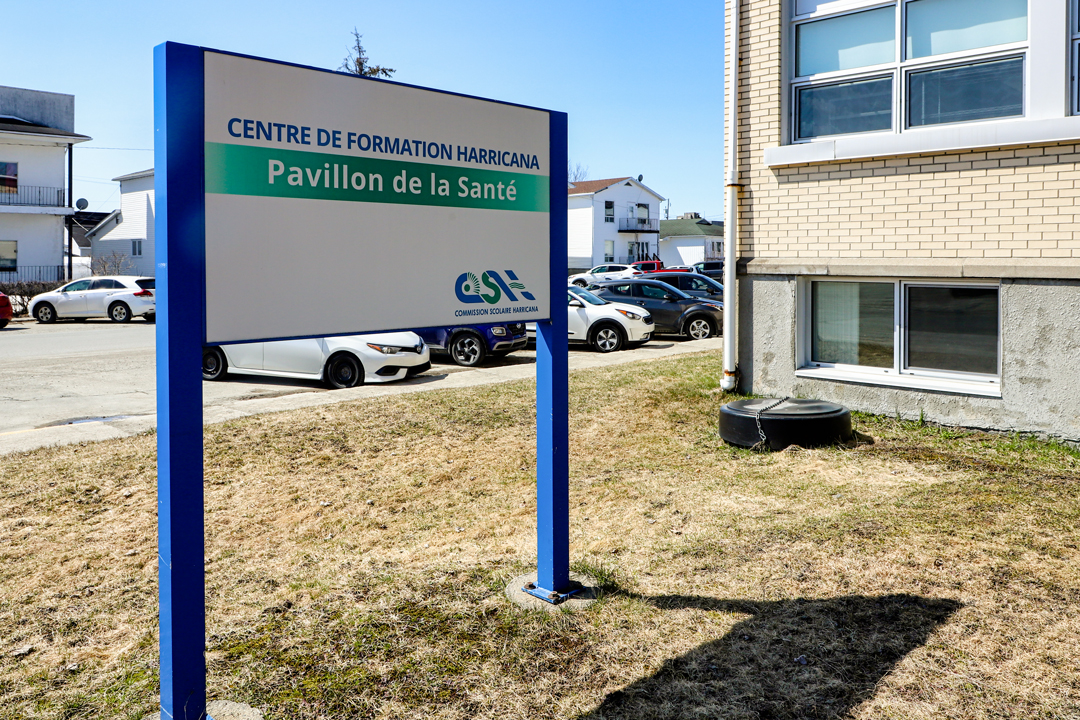 The Diploma of Vocational Studies in Health, Assistance and Nursing prepares students for the profession of licensed practical nurse.
The Diploma of Vocational Studies in Health, Assistance and Nursing prepares students for the profession of licensed practical nurse.The Diploma of Vocational Studies in Health, Assistance and Nursing prepares students for the profession of licensed practical nurse. The duration of the program is 1,800 hours devoted to acquiring 31 competencies related to the profession. This includes time for theoretical and practical learning, as well as workplace practicums.
At his vocational training centre, Paul Darlin was not only impressed by the rooms dedicated to the practice of the trade and the technical equipment available but also by the kindness of the teachers. "They are cute, as you say here in Québec. Patient health, respect and teamwork are important to everyone. We are trained to be professional in our duties quickly."
Consult other videos related to the trade and training under the Useful links and videos tab on the Health, Assistance and Nursing program page.
Paul Darlin's Projects
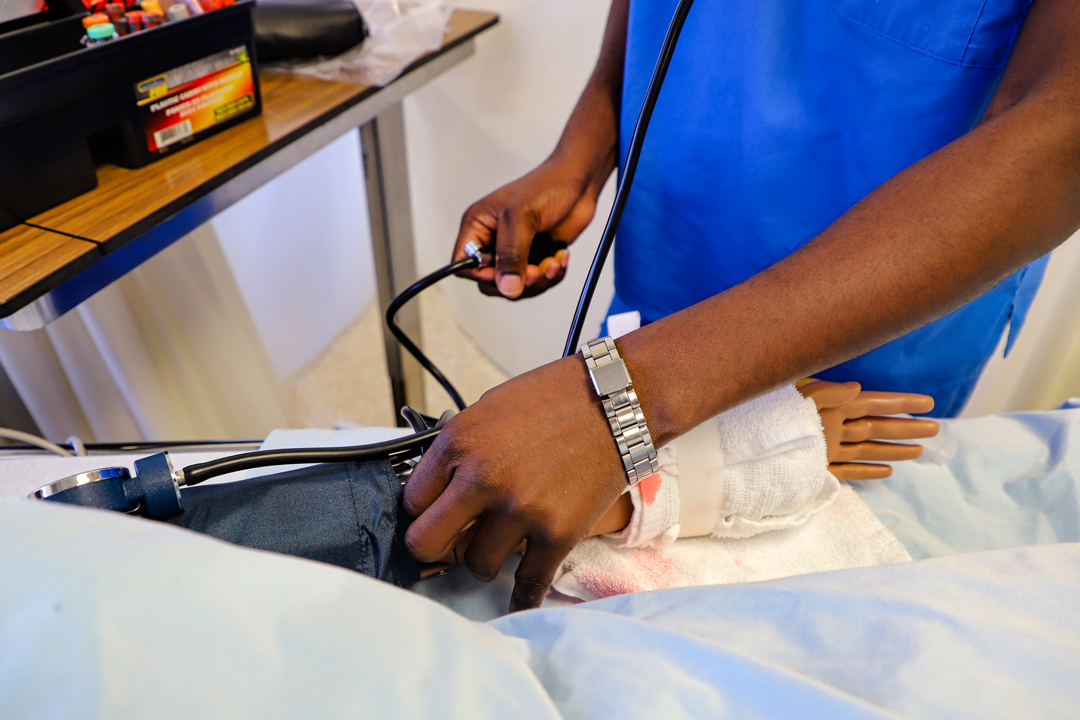 The Diploma of Vocational Studies in Health, Assistance and Nursing prepares students for the profession of licensed practical nurse.
The Diploma of Vocational Studies in Health, Assistance and Nursing prepares students for the profession of licensed practical nurse.The future nurse has only been here for a few months, but he is already used to many aspects of life in Québec. "I had to get used to the way people speak, the accents, and the weather too. It's not easy to get used to the cold when you come from a very hot climate. I am still getting used to it. As for the way things are done here, I had to find my bearings pretty quickly during my first internship in a CHSLD," he says.
For the next year, he is focused on his study project. "I want to succeed and acquire the maximum of skills. After all, I've already crossed a whole continent to get here. The hardest part is over."
Health, Assistance and Nursing
Licensed practical nurses look after the well-being of patients. They monitor vital signs, ensure nutrition, administer medication, change dressings and provide comfort. "It's a profession that aligns with my core values and my dream of helping the elderly and sick," says Paul Darlin. "The training, which is very comprehensive, teaches us life skills, listening skills, and the self-confidence needed for interventions. We are trained to master safe handling, which is crucial for the well-being of patients."
A job as a licensed practical nurse requires being in excellent physical shape, the ability to show initiative and good judgment. "I find the modules to be complementary. For example, we covered helping relationships and then ethics, including all Québec and Canadian laws concerning health care institutions. I think that is very important."
A Profession Where Men are in the Minority
Paul Darlin still has four workplace practicums to complete during his training. He plans to begin his career in a CHSLD, where his skills will be put to good use. As a man, he knows that he is in a profession where women are in the majority: in 2020-2021, male nurses represented 11.6% of the total workforce, according to data from the Ordre des infirmières et infirmiers du Québec.
"I find the modules to be complementary. For example, we covered helping relationships and then ethics, including all Québec and Canadian laws concerning health care institutions. I think that is very important."
Among the new generation of nurses, the proportion of men is slightly higher, ranging from 12% to 14%, depending on the year, contributing to the gradual growth of the proportion of male nurses in the profession. Paul Darlin has one other classmate who is male. "As a man, I bring a different approach and understanding of emotions."
According to the Ministère de la Santé et des Services sociaux du Québec, there is a shortage of at least a thousand full-time licensed practical nurses.
